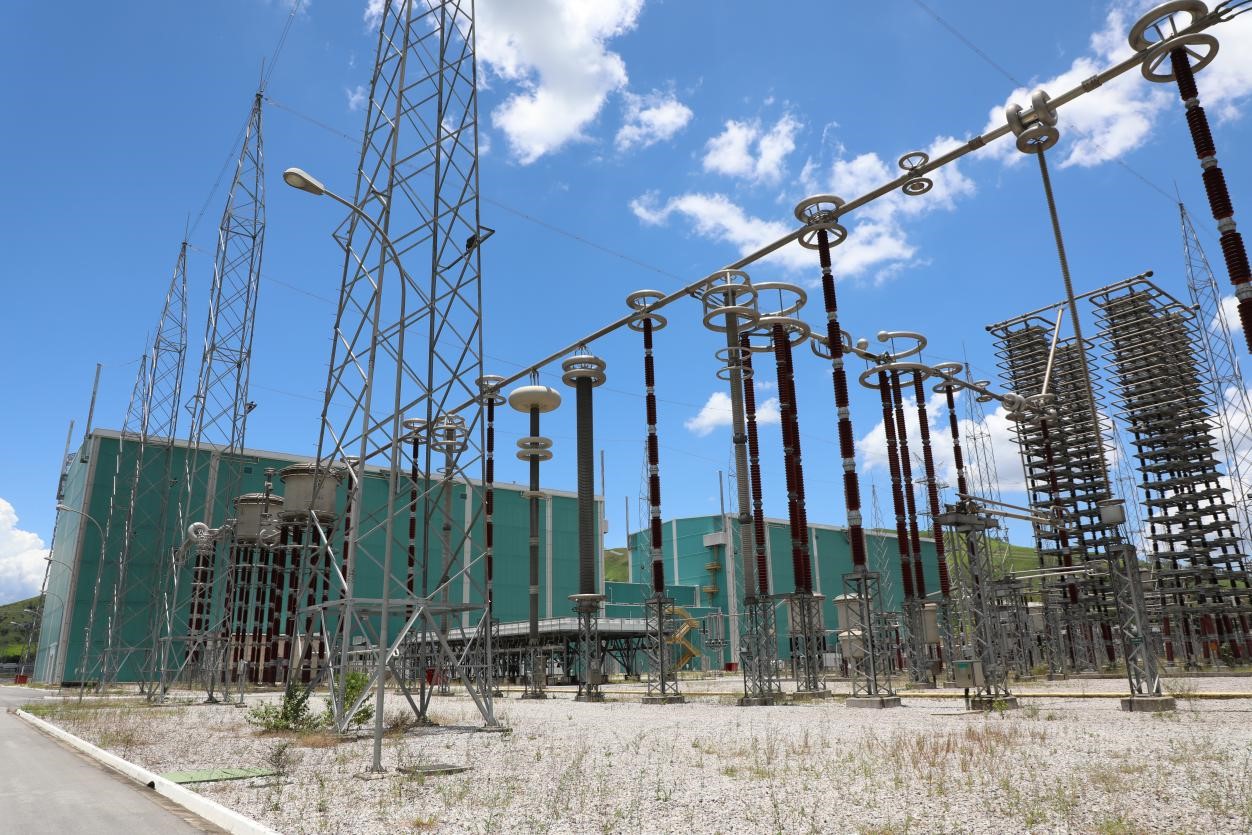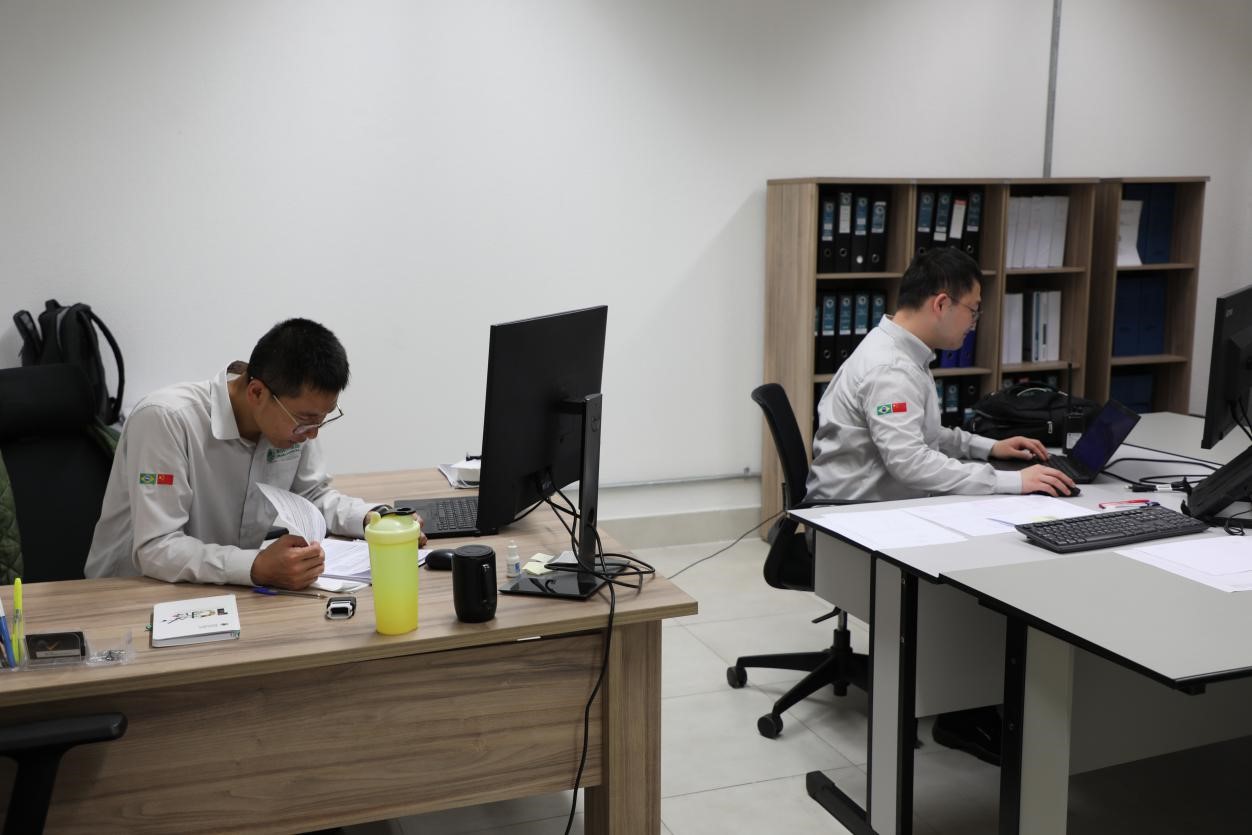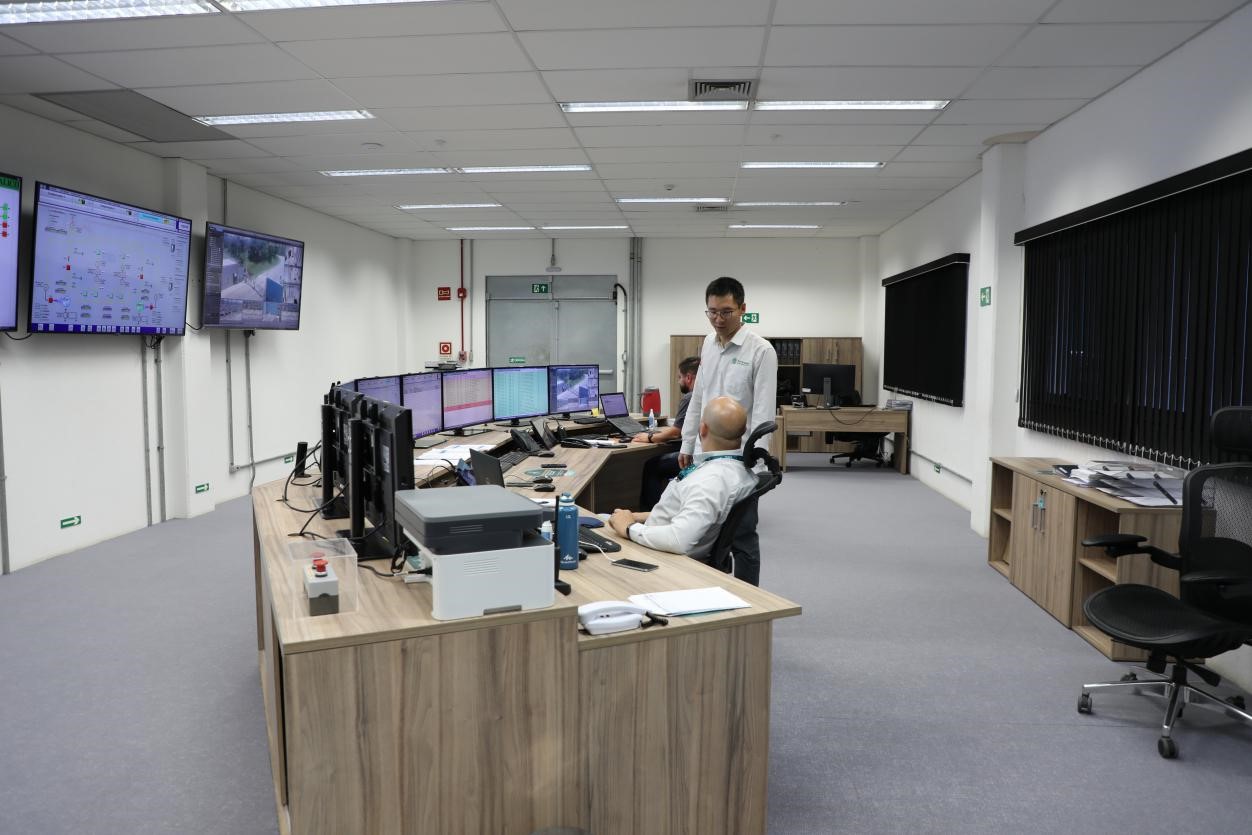Rio de Janeiro (People’s Daily) –During the Spring Festival, reporters from the People's Daily drove nearly three hours from downtown Rio de Janeiro, Brazil, to a large-scale power supply facility surrounded by mountains. This is the Rio converter station of XRTE, Brazil.
The project is funded, built and operated by the State Grid Corporation of China. The total length of its power supply lines is about 2,500 kilometers. It transmits electricity from the Belo Monte hydropower station in the north of Brazil to the southeast of Brazil, across five states of the country, and can meet the electricity demand of about 22 million people. The Rio converter station and the Xingu converter station are located at both ends of the line. They convert direct current into alternating current and are the "heart" of the operation of XRTE.

The Rio converter station and the Xingu converter station are located at both ends of the line. They convert direct current into alternating current and are the "heart" of the operation of the second phase of the Belly Mountain UHVDC transmission project. This photo shows the Rio converter station. (Photo: People’s Daily/Chen Yiming)
Xu Hongfei, director of operations and maintenance of the Rio Converter Station, told reporters that his daily work at Rio Converter Station is to inspect the progress of the operation and maintenance of equipment, exchange operation and maintenance information with Brazilian employees, and provide information to Brazilian holding companies.
The Rio converter station is located deep in the mountains. Its Chinese employees usually live in the nearby small town of Paracambi, and it takes half an hour to drive to the converter station. Their journeys to and from work are along rugged paths, with cars bouncing through dust and puddles.
"We are used to this kind of environment," said Xu Hongfei, who has worked in Rio converter station and Xingu converter station.

Xu Hongfei (left), director of operation and maintenance of the Rio Converter Station, has been working in Brazil for five years and has spent four Spring Festivals here. The photo shows Xu Hongfei and his colleague Guo Ziyu, (right) who recently came to work at the Rio Converter Station, checking the progress of equipment operation and maintenance. (Photo: People’s Daily/ Chen Yiming)
"Working in Xingu is even more difficult,” Xu said. “You have to drive and take a ferry to and from work, hundreds of kilometers every day. It is even more difficult to get to the Rio headquarters from there. Not only do we have to travel long distances, but also have to transfer three times by plane,” he added.
Traveling to and from work and working on holidays is typical of the working conditions of overseas Chinese employees. "I have been working in Brazil for five years, and I have spent four Spring Festivals here," Xu Hongfei said. "The converter station operates day and night, and it is normal to be on duty during festivals. As a Chinese, I have a sense of responsibility to win glory for my country."
"Dedication is a habit, and persistence is a responsibility,” said Chang Zhongjiao, chairman of State Grid Brazil Holding Company. "Brazil's Belo Monte UHV DC transmission project provides a strong power guarantee for Brazil's economic and social development. Sticking to your post during the festival is part of the daily work of securing local power, and our employees are obliged to do so."

This picture shows Xu Hongfei communicating with Brazilian employees about equipment operation and maintenance from the centralized control room. (Photo: People’s Daily/Chen Yiming)
"The Chinese employees here work very hard and are very serious about their work,” Caio Santos, a young Brazilian engineer who once studied in Tianjin University, said of his Chinese colleagues. "I hope I can be like them!"


